Rio de Janeiro, Brazil
Marcio Maranhão, 50
Thoracic surgeon, Parque dos Atletas field hospital
I’ve never experienced anything like this in 26 years as a doctor. I started working on the pandemic in March and at first we were overcome with perplexity. We had 45 days’ warning from Europe, where health systems were collapsing. Even so the severity and the speed of it all were just baffling. You’d see a patient one day, send them home, and the next day they’d come back in a very serious condition and die. We couldn’t understand what was causing such a catastrophic evolution.
You felt such a weight on your shoulders. How can you take responsibility for treating a patient when you don’t know how? We weren’t just treating elderly people, we lost young patients too. Fathers in their 20s, people with their whole life ahead of them, patients with no comorbidities where there was just no explanation for why they were doing so badly. Gradually, this initial fear of the unknown became part of daily life. The risk of passing the illness on to my parents and family was what most troubled me.
In July, my 79-year-old mother-in-law died. She was afraid of dying alone so we improvised an ICU at her home, with oxygen and everything, and she died surrounded by her pets, with her cat and dog on her bed.
Soon after, I fell ill myself. You end up neglecting your own safety a bit because constantly putting on protective equipment is so tiring. I spent 10 days isolating in a hotel to protect my family and became really sick. I had a raging fever and lost 6kg … I went to the ER twice and when I did a tomography, 25% of my lungs were damaged. It took me 45 days to fully recover. It’s an illness that knocks you out … we lost so many colleagues. TP
Elivanda Canuto, 41
Community health worker
I live with my husband and two sons in the Complexo da Maré, one of Rio’s biggest favelas. About 140,000 people live here, more than in most Brazilian cities. It’s a deprived and neglected place where the only thing that could protect us from Covid was unity.
The NGO where I work, Redes da Maré, launched a campaign called “Maré says no to coronavirus”, warning the favela about the dangers, talking to everyone, handing out food, masks and hand sanitiser. Even people who lost relatives weren’t protecting themselves properly. Because of the economic pressures families are under, we’ve seen people going hungry, and with mental health problems.
I’ve seen so much poverty in these past nine months of the pandemic. In one home I found six kids with both parents out of work. On my street people are bartering food. This was common in the old days, when I was a kid. It’s a reality the government seems not to see.
I lost a cousin I was very close to and an uncle I really loved. I had to be part of this battle against coronavirus and became even more engaged after their deaths. The pandemic has made me a different person. CBB
Tarcísio Motta, 45
City councillor
Rio has had really high death rates – more than 12,000 people have died. But we’ve never had a proper quarantine – and our city hall’s response has been chaos. They’ve not come up with any income support policies to help people isolate. There’s never been a testing programme to help us understand where the virus was circulating, or a stimulus package to create jobs. We have a mayor who doesn’t communicate properly with the population. Our public health service was what helped reduce the death toll.
We did something the city hall should have been doing. During the first phase of the pandemic we released daily Covid bulletins to guide and alert people about what was happening. We used public data to track the number of active cases and deaths around schools, so communities could understand what was going on. We used social media to improve people’s understanding of the pandemic. Offering people knowledge and information was crucial in boosting social isolation. TP
Santo Vanzillotta, 64
Newsagent and Covid-19 survivor
I run a newspaper stand in Copacabana and kept working when the pandemic arrived. If I’d have stopped one of my sisters would have had to risk themselves. I thought it was better I did – but then Covid got me.
It’s a really nasty business. I thought I wouldn’t make it. I don’t even like to think about the number of people I saw die before me. I was the first patient taken to the field hospital in Leblon [in southern Rio] … Thank God, after 18 days intubated I got out and recovered – but several friends from the neighbourhood weren’t as lucky.
When I was released, in a wheelchair, the medical team lined up and gave me a round of applause. My sisters were waiting for me at the hospital entrance. I asked them how long I’d been inside. It had been 50 days. I had absolutely no idea. CBB
Milan, Italy
Giuseppe Sala, 62
Mayor of Milan
I made errors. At the beginning of the pandemic – and a little bit still today – the scientific world was really divided. In Milan there were two experts who in February gave different opinions – one said coronavirus was only a little bit worse than flu and the other said it was really serious. One thing I have learned is that, faced with an unexpected and unusual situation, it’s OK to try to interpret things with good sense, but you also really need to turn to government for more formal instructions. At the same time, the pandemic has also reminded me of my city’s values and generosity – so many young people volunteered to assist elderly people at home. We also set up an emergency fund and within three weeks collected €14m [£12.6m]. AG
Morena Colombi, 59
Covid survivor
I learned that life is such an important thing and you need to try to live it better without the need for superfluous things – at the end of the day, they don’t matter. For example, even having a small window from which you can look outside is already a lot. I had a mild case of Covid but my problems started afterwards – for months I have had tiredness and pains. Some days it seems as if you’re getting better, only to then feel as if the clock has turned back by two months. But I still feel lucky – even if I don’t have the life I had before, there are some people with long Covid who have really serious problems. AG
Pietro Orlando, 31
Care home worker
The pandemic has made me think about the importance of life – this virus is killing more people than in a war. It has taken away the small things, such as being together, being affectionate. Such things are so important for older people, but right now they can’t see their families, and so they turn to us for comfort, but we can’t even hold their hands. It has also reinforced how much I want to continue in this job. Working with elderly people gives me so much joy – I see them all as grandparents. It is also very satisfying – for example, when someone recovers from Covid, or tests come out negative, you realise you took all the right precautions. It has reconfirmed my love for the job. AG
Mietta Venzi, 62
GP with a specialism in respiratory illnesses
In this job, you always face suffering, illness and death but the big difference when this pandemic hit was that, after 30 years of practising, for the first time I was afraid. I was afraid that by doing my job I could get infected and die. We had all the protection but colleagues still got infected, and I lost some dear ones. Milan has been badly affected in the second wave, so we are much more involved. I have less personal fear but at the same time I have lost more patients. There is hardly any time to absorb it as the deterioration and aggressiveness of this illness happens so quickly. I learned that there are never any certainties. The experience has made me think more about my own mortality. AG
Kobe, Japan
Hisato Kosai, 33
Doctor, Japanese Red Cross Kobe hospital
We’re now in the third wave of Covid in Japan and the future looks uncertain. At this point it’s hard to be optimistic and say we’ll be able to get the virus under control any time soon. On the other hand, there’s a vaccine, and we have got better at dealing with the virus.
I have been working directly with patients on the Covid ward since around the end of April. It’s hard to say if we have the full support of the public or not. I appreciate the extra money we receive from the government, but on the other hand, we are sometimes told not to attend certain events because we are medical workers. When the primary school opposite our hospital closed down because of the pandemic, the pupils hung a banner from the window thanking us and urging us to keep going. It’s reassuring to know that some people are behind us. It’s hard to predict what will happen, but I worry about the gap between health professionals and people who know nothing about the virus, including young people who think it’s best if we all get Covid-19 and establish herd immunity. But all they are doing is spreading the virus. If we don’t close that gap, we could end up facing a worst-case scenario. JM
Fusaho Izumi, 56
Mayor of Akashi city
It’s my job as mayor to protect the lives and livelihoods of the people of Akashi. We gave businesses emergency financial support and they did not have to pay rent for two months. We have also provided money to students so they don’t have to quit university. There is a long list of people who have had to depend on the Akashi municipal government for support during the pandemic. At the beginning there was talk of beating Covid and life post-Covid, but we have to accept that we are going to have to live with the virus for the time being. It’s important to create a tolerant, inclusive atmosphere that means if you become infected, it is OK, you will get the support you need. The same goes for businesses where there have been outbreaks. It can happen, even if they take all the necessary Covid prevention measures. The point is not to blame them, but to support them. JM
Setsuko Onishi, 43
Head nurse, Japanese Red Cross Kobe hospital
The most difficult part of my job is dealing with the way this abnormal situation has disrupted patients’ lives. I’ve been anxious the whole time, constantly asking myself if I’m doing everything right in terms of infection prevention and control. Some of the patients who were here before the Covid-19 outbreak also faced restrictions on family visits and couldn’t go out. Their lives changed dramatically, and providing nursing care is really tough under those circumstances. Like other hospitals, in the early days, Covid patients were in the same building as other patients, and we had a shortage of personal protective equipment. But we got through it, thanks to the support of other people. One patient who recovered from Covid sent us a letter. We were worried that they had memories of being scared and of looking up at us in our PPE, with only our eyes visible. But instead, they thanked us for fighting alongside them. It was really powerful. When we read the letter, we all started crying. JM
Ryota Fujiwara, 33
Chief care worker, Akashi city
We have had to be very careful about keeping the home Covid-free given that our residents are vulnerable older people. We do the obvious things at work, like washing our hands and disinfecting the facility every day, and when we’re not at work we try to avoid going out. The idea of travelling, using subsidies the government is offering during the pandemic sounds nice, but now is not the time for sightseeing. I think people have the impression that our work isn’t particularly cheerful, but we have lots of bright moments, with plenty of laughter. The hardest thing has been the restrictions on family visits, but we do our best to help the residents maintain a proper routine and quality of life. It’s very challenging, though. In some cases, their families want to look after them at home, but that’s not possible, so we try to be like a surrogate family to the residents. Maybe “family” is too strong a word … we just hope they remember having happy times with us in the later years of their lives. JM
Lagos, Nigeria
Maryjane Anyanwu, 23
Nurse, Lagos University teaching hospital
I got Covid while working at the hospital. I was working during the whole period when it started. At first I thought it was a normal flu that would pass until a colleague said they had come into contact so I had to get tested. I was positive and went to the isolation centre in the hospital. I was admitted in early May. In there I saw familiar faces: doctors, nurses, colleagues. I thought it couldn’t be that bad because I’m not surrounded by strangers but emotionally, psychologically, it broke me down.
It was very scary. You couldn’t go out, see anyone. I had never been admitted. It was a new thing, a strange experience, traumatising. I felt so isolated.
What broke me down even further was when we lost someone. There was a lady opposite me that died after I was admitted. She was in her early 30s. I didn’t get to know much about her. When I was admitted she wasn’t really conscious. She regained her consciousness but when she did, she was talking hysterically, she kept saying, “I’m going to die, call my husband. I’m going to die.” We kept reassuring her: “Ma, you’re going to be fine,” but eventually she died. It made me really scared.
I stayed there for 11 days. I recovered quite fast, faster than some of the people who got admitted. I feel the same as before now. I think I’ve recovered fully.
When I’m surrounded by people who doubt the presence of the virus, I have to tell them that I’m a survivor, so it’s real. It made me strong, because I had to be strong to tell them that I made it out alive. EA
Juliet Anyanwu, 32
Covid response nurse
We stayed in a hotel for about six months. It was really tough. We couldn’t see any family or friends. It was quite boring, although the work was so intense and stressful we had no time to even think about having fun or a social life. The days were really intense. Sometimes I started at 8am and finished around midnight. Then I’d sleep for a few hours, wash and head back to the ward again. My family didn’t want me to be in the response for fear of getting infected, but when cases were rising in Europe and America, I knew when the situation arrived in Nigeria I wanted to be a part of the response.
I had a lot of fear, but at the same time I made myself have courage. I thought, if I don’t do it, if we don’t do it, who will?
There were a series of challenging moments during that period. The most difficult was a man with the classic symptoms of Covid. We got him oxygen, treatment. He came in late, so by that time the effects on his lungs was significant. One day I started my shift and I noticed he wasn’t making any respiratory efforts. He was gone. It was devastating for me because I didn’t see it coming, I thought he would make it.
Before administering care, we were expected to wear our PPE. You feel hot, you get drenched with sweat. The suit makes it harder to form a connection and that’s a primary part of nursing. You can’t see our face. Even our voices aren’t clear. So even when you tell them your name, they can’t recognise you. They can’t see your skin. You could be fair, dark, slim, big. Really it’s when they recover and see you outside the isolation ward that they can see you and then really connect, like “Oh so it’s you, Nurse Anyanwu, thank you so much!” EA
Dr Adewale Ogundare, 36
Senior registrar, Lagos University teaching hospital, respiratory unit
When the pandemic was declared by the WHO, and with the disease spreading all over the world, we were trying to prepare ourselves. We were uncertain about what was going to happen, especially looking at the images from Europe, and especially Italy, in countries that are more developed than we are. Because we often struggle for ICU places we were worried about what was going to happen here.
I feared the worst for Nigeria. But for certain reasons, some we still don’t understand, it didn’t have the same impact here. There was a recent paper I read saying that some Africans have “cross reactive antibodies” to the Sars-CoV-2, it said we are probably exposed to coronaviruses, that our bodies could have produced antibodies against, and these antibodies could have had an effect on the coronavirus.
I remember one case vividly. This man was in his early 40s. No previous medical issues. He came in with a cough, a fever. He was so breathless but we couldn’t find a high-risk factor, although he worked at a port where people were coming in and out of the country. He’s one of those people I would say was young and healthy that had a severe disease. He didn’t survive. We also saw a lot of younger people who came in with the disease but the majority were asymptomatic.
Because the outbreak is not compared with other places like Europe and America, people are beginning to let their guard down. During the pandemic, people didn’t go out without masks and sanitisers, now you don’t see it as much. But we know there are still cases. The risk is still there, the infections are still out there and people are still dying. EA
• Throughout 2020, Guardian journalists have worked round-the-clock to get to the truth about the pandemic. Because good journalism can help save lives. Support independent media. Support the Guardian.










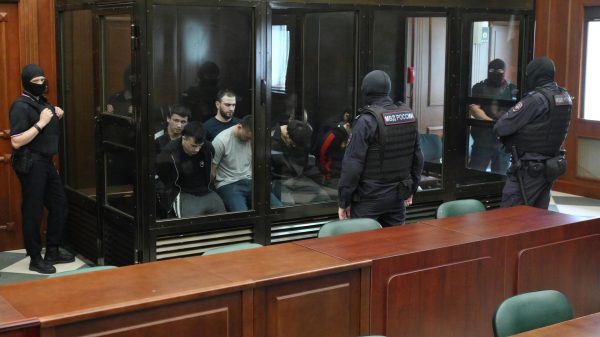







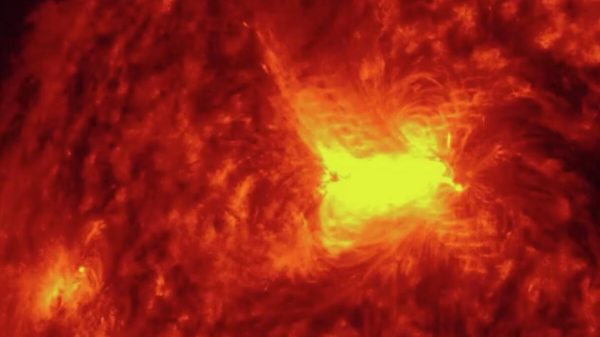
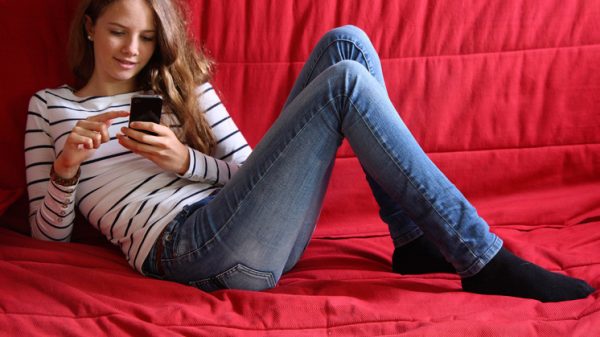

















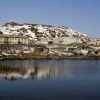
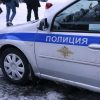














Свежие комментарии